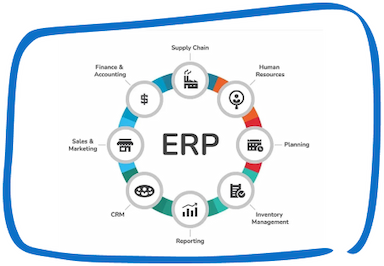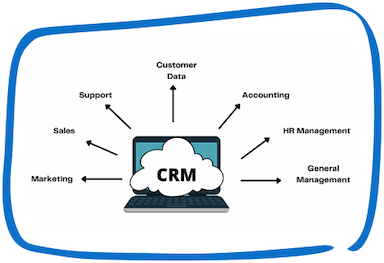The Federal Tax Authority (FTA) and the Ministry of Finance announced that corporate tax would take effect in the United Arab Emirates on June 1st, with a rate of 9%. For UAE Free Zones, the UAE has published a completely own set of company tax laws. The phrase Qualifying income under UAE corporate tax has been released by the government, and this is where the tax due will be determined.

This session covers the Corporate Tax in the Free Zones and the Qualifying Income for Free Zone Individuals.
What is Qualifying Income?
Qualifying Income is any income received by a Qualifying Free Zone Person that is exempt from corporate taxes. The qualifying business activity or transaction carried out within the qualifying free zone is what yields or determines the qualifying income.
Corporate Tax Consultation
Get expert advice tailored to your business needs. Simplify compliance and optimize your tax strategy.
Criteria for Determining Qualifying Income
The following standards establish the qualifying income for the qualifying free zone person, as per Cabinet Decision No. 55 of 2023.
Revenue from dealings with other individuals in the free zone contributes to the total revenue. This excludes revenue from excluded activities, which a ministerial decree determines. Eligible free zone individuals carry out these excluded activities, resulting in non-qualifying income.
Revenue from dealings with a non-free zone individual is considered, but only for activities that meet the requirements and are not prohibited.
Try Our Corporate TAX Calculator
additional revenue that satisfies the De Minimis criterion for the person who qualifies for the Free Zone. (To learn more about De Minimis, read on.)
If the beneficiary recipient of the relevant services or goods is a Free Zone Person, authorities will deem the income to have originated from dealings with that Free Zone Person.
Who is a Beneficial Recipient?
A beneficial recipient is someone who has the right to use and enjoy a service or good. They have no contractual or legal obligation to transfer the service or goods. This applies to both tangible and intangible items. The obligation to transfer does not exist in their agreements or within the law.
It is necessary to ascertain whether the Qualifying Free Zone Person possesses a permanent establishment within the country. In this situation, authorities may consider a “Non-Resident Person” as a “Qualifying Free Zone Person.”
Qualifying Income for Domestic or Foreign Permanent Establishment
Payable Income to a Qualifying Free Zone Individual’s Domestic Permanent Establishment or Foreign Permanent Establishment would be Taxable Income, subject to 9% Corporate Tax for the Free Zone Business.
Authorities treat the taxable income earned by a qualifying free zone person during a specific period as belonging to a separate and independent entity. This occurs if the qualifying free zone person has a permanent establishment, either domestic or foreign, and earns income for a tax period.
Income Requirement for Free Zone-Located Immovable Property
Income from these transactions, payable to an immovable property situated in a free zone, will be considered taxable income. It will be subject to the following taxes:
Deals involving Commercial Property with Non-Free Zone Parties
Deals involving any individual regarding real estate that is not commercial
The income payable to the immovable property follows the Corporate Tax Law requirements. This income constitutes the taxable income for these two transactions during a specific tax period.
What are the De minimis Requirements?
If the non-qualifying revenue of the qualifying free zone person does not exceed the total revenue percentage for that tax period, the De minimis requirements are deemed met. Authorities compare the lower value between the total revenue percentage or the amount designated by the minister.
When determining non-qualifying revenue and total revenue, we exclude the following revenue:
A. Real estate in a free zone owes income from the following transactions.
Transactions involving Commercial Property with Non-Free Zone Parties
Deals involving immovable property that isn’t commercial property with a person
B. Income due to a Permanent Establishment of the Qualifying Free Zone Person, either domestically or abroad
During a tax period, non-qualifying revenue can come from any of the following sources:
- Excluded activities
- Activities that fail to meet qualifying requirements occur when the other party is not in a free zone. In such cases, certain criteria are not satisfied. This impacts eligibility for specific benefits or considerations.
Total revenue refers to all revenue received by a qualifying free zone person during a tax period.
Authorities consider a Related Party to a qualified free zone person separately. They view a qualified free zone person and its domestic or foreign permanent establishment as autonomous entities.
Corporate Tax Services
Penieltech is a tax consulting company with a wealth of experience in corporate tax law. The team offers updates. These updates are pertinent to the Qualifying Income of the Free Zone Person. Additionally, they cover Corporate Tax in Free Zones.
Tax Accounting Software
Streamline your corporate tax processes with our easy-to-use software. Ensure accuracy and save time.
Our FTA-approved corporate tax experts in the UAE offer a comprehensive corporation tax solution for free zones. They identify the required income and ensure adherence to rules for qualification as a qualifying free zone individual. This eligibility allows for 0% corporate tax in the UAE.
Speak with Our Team!
4.9 Stars
1k+ reviews on






